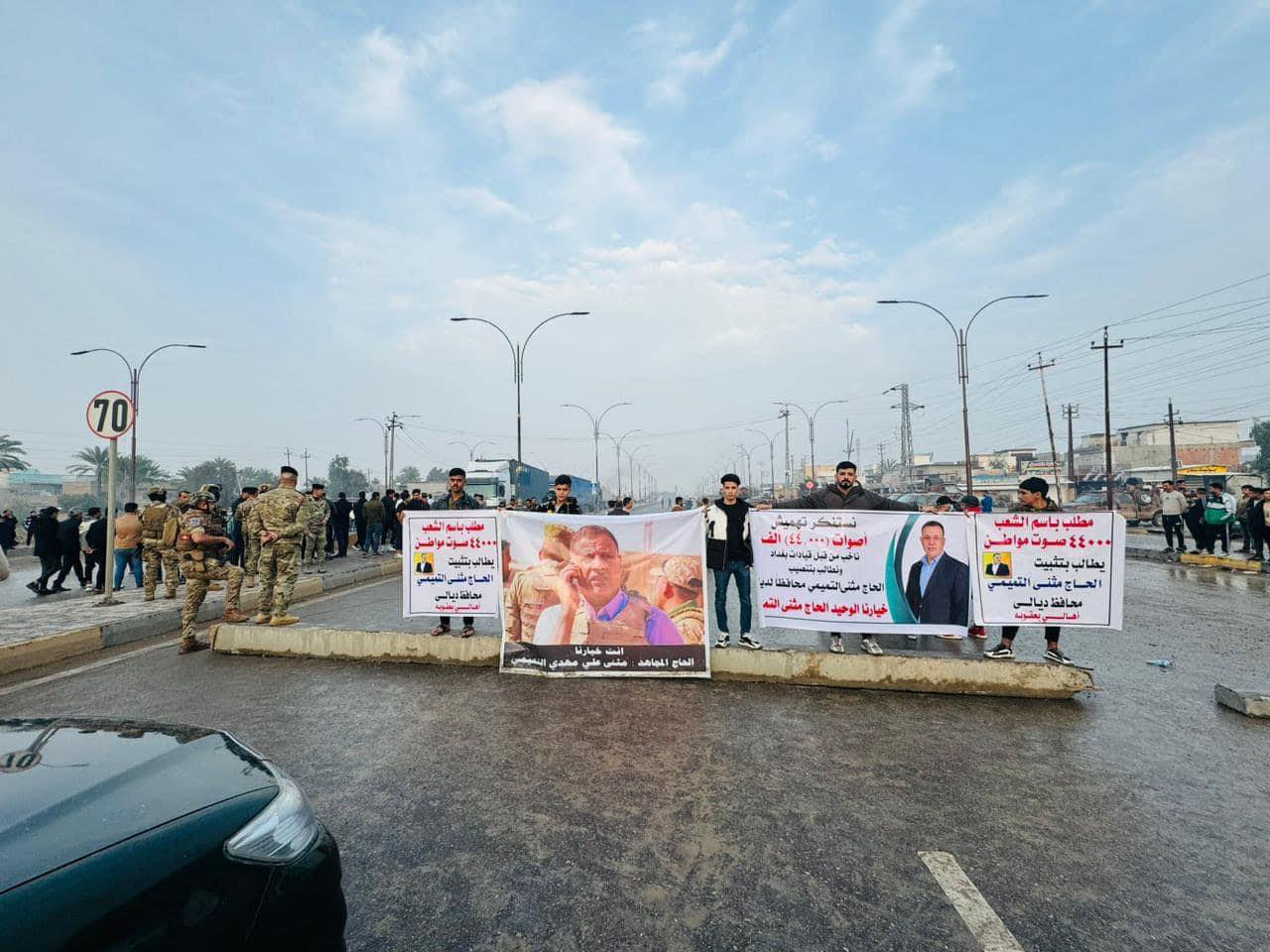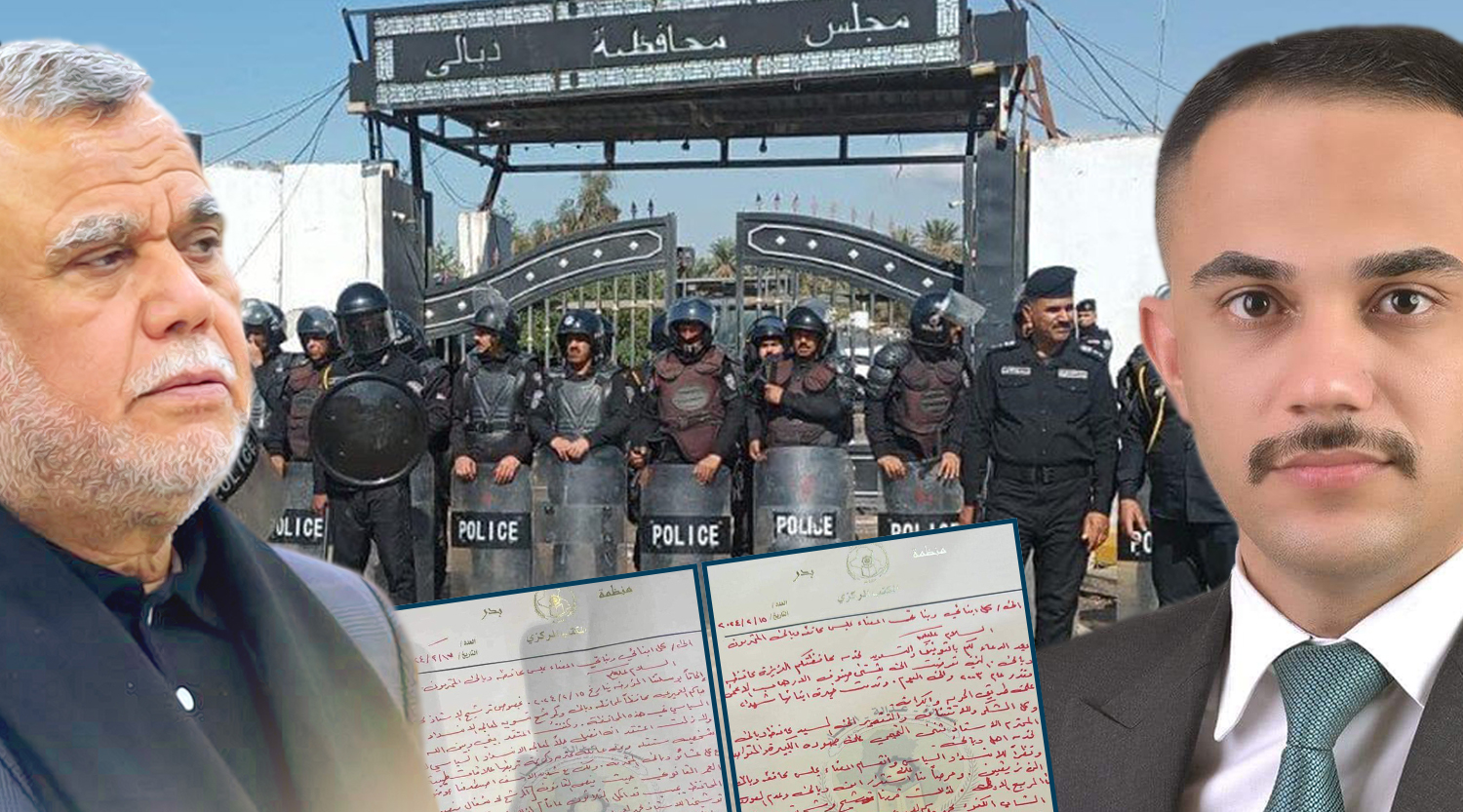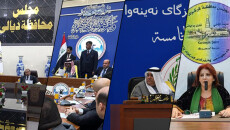Tribal pressures, political disputes, and the division of members of the Diyala Provincial Council on two fronts postpone the formation of the local government as the situation moves toward political stagnation.
This comes at a time when supporters of the current governor of Diyala went out in demonstrations in Baqubah, the center of Diyala governorate, and Baladruz district to demand that the position be given to a figure from the Bani Tamim clan, specifically to Muthanna Ali Mahdi Al-Tamimi, who received the largest number of votes in the provincial council elections that took place on December 18 of last year, with 42 thousand. And 812 votes.
These developments came after the Diyala Provincial Council failed in its first session, which was held on February 5 and lasted for four hours, to elect the council’s president and deputy.
The Council's stumble resulted from the inability of the candidates (Omar Al-Karawi from the Sovereignty list and Nizar Al-Lahibi from the Progress list) to secure the votes necessary to win the position of president in the first round. In contrast, the lack of a quorum prevented the second round from being held.
The 15 members of the Diyala Council were divided into two teams: the Team of Eight and the Team of Seven. The two teams include a mixture of Shiite and Sunni parties seeking to secure the largest number of senior positions in the local government in their favor.
Hadi Al-Amiri, Secretary-General of the Badr Organization, who appears as rapporteur of the Group of Eight and includes on his side from the Sunnis both the Progress and Resolve Party and from the Kurds the Patriotic Union of Kurdistan PUK, nominated on February 15 Muhammad Jassim Al-Oumairi for the head of Diyala provincial council.
Al-Amiri called on the parties and blocs within the Provincial Council to support his candidate and vote for him.
Al-Amiri wrote in a letter to the Diyala Provincial Council saying, “To all my sons and daughters, the selection of this candidate for the position of governor, who is a competent young man and from a respectable and honorable family, came given the political impasse and the division of the members of the Diyala Provincial Council, and for the sake of the stability of Diyala security.”
Diyala Provincial Council consists of 15 seats, four of which are allocated to women. Diyala Governorate is home to 1.6 million people, 90,000 of whom live in the center of the Khanaqin district, according to estimates by the Central Bureau of Statistics for the year 2019.
The population of Khanaqin and its surrounding villages is 135,000, mostly in 36 neighborhoods. The district is a disputed area in northeastern Diyala province, 180 km north of Baghdad.

In conjunction with the message, demonstrations of the Bani Tamim clan were launched in Baquba - the center of Diyala Governorate - and Baladruz district. The demonstrators supported Muthanna Al-Tamimi, the current governor of Diyala who won the highest number of votes.
The demonstrators set up sit-in tents in front of the Provincial Council building to demand the re-election of Muthanna al-Tamim as governor of Diyala.
Two days after his first letter, on February 17, Hadi Al-Amiri sent another letter to the members of the Governorate Council in which he wrote, “With great regret, we collided with the issue of the legal age, as the law stipulates (the candidate for the position of the governor must have completed thirty years), so we decided to withdraw our candidate.”
Despite this, he expressed his belief that his candidate is the “best solution” to address the political impasse because he is an “independent” personality and from a respectable and generous family with good relations with all the tribes of Diyala.
The settlement candidate proposed by Al-Amiri for the position of governor of Diyala is the son of Jassim Muhammad Al-Oumeri, the president of the Federal Court, so he devoted a paragraph in his second letter to extend thanks and gratitude to the Judge “for agreeing to nominate his son after our intense insistence, and his only condition was if he was a settlement candidate to address the political blockage there.”
At the end of his message, the Secretary-General of the Badr Organization called on the Bani Tamim clan to “resolve their differences among themselves as quickly as possible” to bring the governorate to safety and peace.
Al-Amiri's second message did not quell the protests of the Bani Tamim clan and could not calm the situation, but the three members of the Diyala Governorate Council belonging to the Bani Tamim clan pledged to propose other candidates for the position of governor.
Aws Ibrahim, a member of the Diyala Provincial Council from the Eight Team, said, “Muthanna Al-Tamimi is still a strong candidate for the position of governor, especially after the withdrawal of Muhammad Jassim because of the legal age requirement of years of his career service.”
Aws pointed out that there are "political and tribal efforts to re-elect Muthanna as governor of Diyala, but it is not yet clear what the clan will agree on."
Bani Tamim is one of the largest Shiite clans in Diyala and is represented by three members of the Diyala Provincial Council.
The highest legislative and supervisory authority within the boundaries of the governorate administration shall be with the Council, which after electing a president and a deputy, has the right to issue internal rules and instructions for managing the affairs of the governorate, formulate the general policy, and discuss and approve the local budget and project plans.
In addition to electing the governor and his two deputies, the mayors of districts and sub-districts, the council can decide the candidates for the positions of general directors and other senior positions before the Council of Ministers votes on them, and the council can also, based on several terms and conditions, withdraw confidence from senior administrative positions in Kirkuk.
The Iraqi provincial councils were dissolved at the end of 2019 under the second amendment to the provincial council elections law, which was one of the demands of Tishreen (October 2019) protesters in Baghdad and several other provinces against corruption, demonstrations heavily targeted, left hundreds of civilians killed and thousands injured.
In addition to the first session, three other meetings were called for, none of which reached a quorum
It is not clear if the Council meetings will yield results or if a quorum will be achieved unless a prior agreement is reached on the distribution of positions. "In addition to the first session, three other meetings were called for, none of which reached a quorum," Ibrahim said.
Three months later, Kirkuk and Diyala are still the only two governorates that have failed to form a local government.
“The demonstrations will have an impact on determining the candidate for the position of governor, especially since members of the Tamim clan have set up sit-in tents in front of the provincial council building since February 17,” according to Ibrahim.
The Seven Team, consisting of the Sovereignty List headed by Khamis al-Khanjar, the Al-Hikma Movement headed by Ammar al-Hakim, Asaib Ahl al-Haq led by Qais al-Khazali, and the Diyala Entitlement List, called on Hadi al-Amiri on February 17 to identify another candidate for the position of governor, provided that he meets the legal, professional, and competency conditions “to overcome the political blockage that has delayed the formation of the local government in Diyala, and we will be the first party to support it,” according to a statement from the Seven Team.
Civil activist and observer in Diyala, Ali Al-Hajiya, told KirkukNow that “the eight and seven teams are not yet ready to make concessions to the other. The only decisive point is that the (Shiite) coordination framework agreed to assign the Badr Organization to resolve the position of governor and identify a candidate for him.” ".
“The clans in Diyala influence such issues, and perhaps among themselves, specifically the Bani Tamim clan, will be able to resolve the issue and agree on a candidate to assume the position of governor,” Al-Hajiya said.






